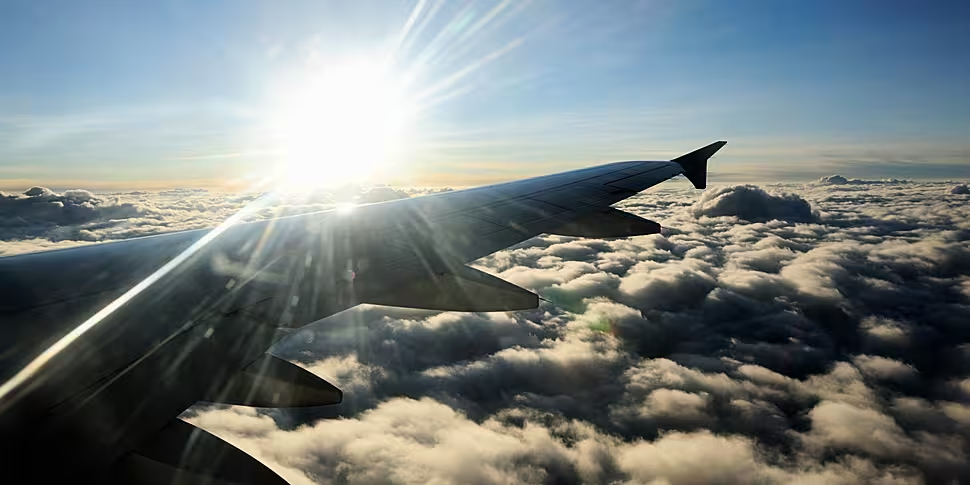‘Jet Setters’ should face a frequent flyer tax to raise billions for the fight against Climate Change, an aviation group has said.
It comes after a new study by the New Economics Foundation (NEF) found that introducing the tax across Europe could raise around €64 billion per year at no extra cost to most people.
This morning, ‘Safe Landing,’ a campaign group made up aviation workers pushing the industry to fight climate change, said the plan could target the elite, while allowing the rest of us to continue flying.
On Newstalk Breakfast, Safe Landing co-founder Finlay Asher said we need to take action now to protect aviation into the future.
"My group, Safe Landing, is made up of aviation workers from across the sector,” he said.
“We’ve got pilots, cabin crew, air traffic controllers, people who work in airlines and airports.
"We love exploring the planet, we love flying – but what we’re concerned about is that freedom to continue flying in the future is under threat because of the emissions growth of the sector.
“We think we’re on a really dangerous flight path and we need to set a new trajectory where we cut emissions.”
Elitist worries
He said the ‘Jet Setter’ tax could prevent flying becoming something only the richest people in society can afford.
"This is recognising that actually the majority of people who use the most flights, who use the most airmiles today are a very small minority,” he said. “They are the most high income, high emitters.”
“If we can target that group of people and have them reduce their flying, then that will allow more budget, as it were, for the rest of society to do a more moderate amount of flying themselves."
Irish flyers
He said the plan would raise huge amounts of money for the fight against climate change – without having any effect on most people in Ireland
"You’ve got roughly half the population that don’t fly at all in a given year,” Mr Asher said.
“Then the next quarter of people that do, they usually take just one or two flights at most and usually that’s relatively short haul as well - let’s say a holiday to Spain or Italy - and that wouldn’t incur a tax under this scheme.
"What you’re aiming to do is, you’re aiming to target people that take four, five, six … you know, there are people who take 20 flights a year.
"It’s them that cause the bulk of emissions.
"So the whole point of this is to try and do this in a fair way that targets the really frequent flyers and doesn’t target the vast majority."
Staffing worries
The Safe Landing co-founder said he does not believe the move would have an adverse impact on staff in the industry.
"Let’s just think about one aircraft that’s flying across the Atlantic to the US," Mr Asher said.
"The way that’s configured at the moment is to maximise the number of first class or premium seats because that’s where airlines make a lot of their profit margin.
"If we were to tax frequent flyers, we’d probably see less of those seats and actually that might mean you get more people in that aircraft because there’s more economy seats.
"That actually makes the aircraft more efficient because you can then transport more people.”
Fair systems
The aerospace engineer said the tax could be used to address the inevitable rise in the cost of flying in the coming years.
He also rejected claims the plan could come with GDPR concerns – noting that airlines and Governments already track people’s flying habits.
Listen back here:
Sun above clouds with the wing of an airplane, 26-7-11. Image: Image Professionals GmbH / Alamy









